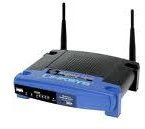Learn About Network Security Issues: A Home Computer Guide
What Issues Can You Expect?
Having a personal computer at home can be quite helpful, especially if you work from your home or own a small or home business. With a personal computer, you can check email — both private and professional — chat with friends and co-workers online, and even play video games.
But having a computer is a big responsibility. You don’t have to feed it or take it for a walk, but there are things you should be aware of, especially if you plan on doing a lot of things online. While it’s fun to interact with people in, around, and even out of town, there are also people out there who want to take your personal information.
Computer Networks & You
What exactly is a computer network? In essence, it’s group of two or more computers that are connected together in some way, usually by the Internet or by an internal connection. Having a network between groups of computers make it easier for people to share and retrieve documents from other people or businesses and even each other.
While computer networking was of vital importance within businesses and corporations, once the personal computer found its way into
the homes of individuals, networking began to encompass both business and personal use. And why not? Most homes will have at a minimum of two computers in the house, whether they be laptop computers or desktop computers. Setting up a home network is great for sharing music, videos, printers, and other files with friends and family members.
While there are many advantages to having a home network, one of the big disadvantages is that of security. It’s not that home networks aren’t secure, it’s just that individuals don’t know enough or anything at all about network security issues, so they do not take the time to properly set up their networks to keep their information safe.
There are two types of networks - that of wired networks and wireless networks. Wireless is probably the most popular due to the surge in popularity of laptops, but many times these networks are unsecured. Unsecured networks are those networks that are not password protected, meaning anyone that comes into the radius of your wireless signal, they can use your Internet connection. Not only that, but they will also have access to your files and documents as they are now a part of your network.
Not securing your wireless network can invite trouble, like thieves and hackers, who can gain information from your files and documents in order to find contact listings, usernames, and passwords to banking or financial information and even websites you visit. This can lead to a variety of problems, such as becoming a victim of phishing scams or identity theft.
How to Protect Your Network
Knowing about network security issues can help in the long run because you will have a better idea on how to protect yourself. Wired networks are a bit more secure than wireless networks due to the fact that they don’t broadcast a signal outside of the home or business. Because wireless networks can broadcast at a fairly far range, it is important that you keep your network secure so that only you or those you allow to have access.
Network Encryption - Network encryption basically means setting up a password in order to enter and user your home network. This is usually done upon the initial set up of your wireless network, when you are able to log in to your router in order to set up your network. You should always start by setting a password to both your router and that of your network. There are several encryption types, but the most popular are WEP & WPA.
- <em>WEP</em> - this is the older encryption and by the far the weakest, as it has been known to allow intrusions that are not authorized.
- <em>WPA</em> - the newer standard that came to replace WEP. The finished product is WPA2. This has a greater overall security.
MAC Filter - a MAC filter is when only the computers you authorize are allowed on your network, basically telling your network that only these addresses are allowed access. Anyone not on the list doesn’t get in.
Taking precautions is the first step in keeping your info safe.
